Streets for Life - our advocacy push for 30km/h streets
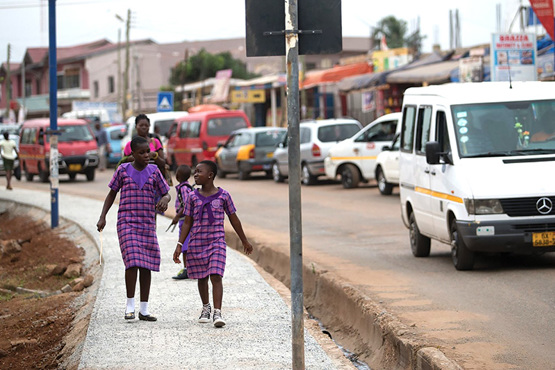
A new €15 million Advocacy Hub for safe streets has been launched by the FIA Foundation to support the policy change needed to limit speeds to 30 km/h (20 mph) on streets where children walk, live and play, at the start of UN Global Road Safety Week.
The Advocacy Hub, based within the FIA Foundation’s Child Health Initiative, will support organizations across the world engaged in policy change activities to secure safe, low-speed streets below 30km/h where pedestrians, particularly children and youth, mix with motorized traffic. With an initial fund of €15m over five years, it is intended to deliver on the Child Health Initiative’s Manifesto 2030: Safe & Healthy Streets for Children, Youth & Climate, launched at the Stockholm Ministerial Conference on Road Safety in 2020.
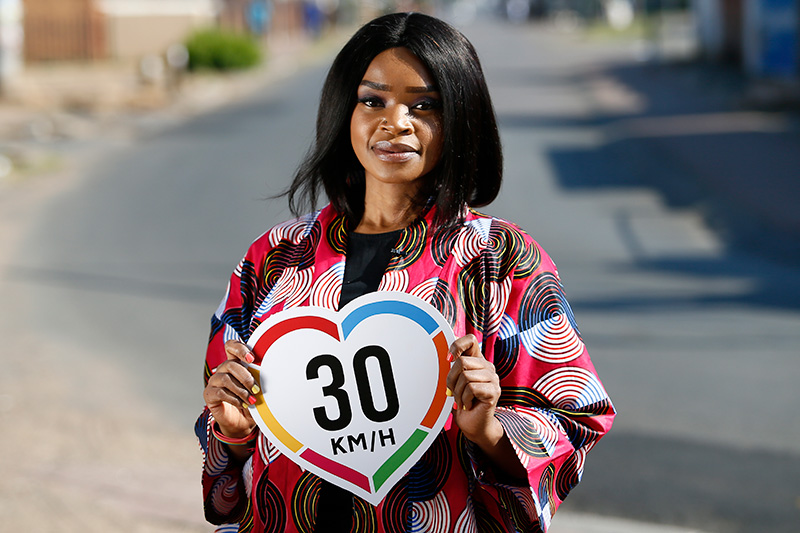
The Advocacy Hub has identified an initial portfolio of interventions, including ‘Persuader’ campaigns aiming for specific legislative and regulatory change; ‘Pathfinder’ projects developing an enabling environment for policy change; and support for global coalitions building capacity and awareness as well as supporting a mix of Persuader and Pathfinder interventions. Partners include UNICEF, UN Environment, the Global Alliance of NGOs for Road Safety, YOURS – Youth for Road Safety, and a range of regional and national NGOs.
“At the heart of the 2020 Stockholm Declaration for Global Road Safety was a call for 30 kilometre a hour speed limits on urban streets. Why? Because we know that above 30 the risk of death for pedestrians rises exponentially. So, it is a simple equation. If you support Vision Zero, if you believe that no one should die or be maimed in a road crash, then you must ‘love 30’. Our new Advocacy Hub will put money, expertise and single-minded determination behind this objective”, said Rt. Hon. Lord Robertson of Port Ellen, Chairman of the FIA Foundation.
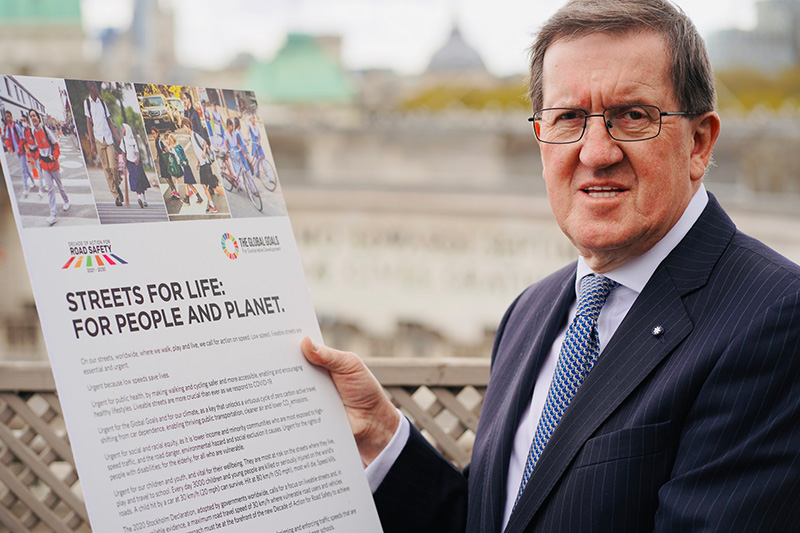
“So many of us around the world are taking to the streets and demanding change. The streets are for the people. We want low speeds, we want livable streets, and communities where we can walk safely, where our children can get to school unharmed. We call for 30km/h speed limits. Above 30 is a death sentence. These are our streets,” added Zoleka Mandela, Global Ambassador of the Child Health Initiative.
The new Advocacy Hub was announced by Lord Robertson at the Global Launch for the 2021 UN Global Road Safety Week, hosted by the World Health Organization and the FIA Foundation on Monday 17th May 2021. The event, featuring speakers including Dr Tedros Adhanom Ghebreyesus, Director-General, World Health Organization; Michael Bloomberg and Maimunah Mohd Sharif, Executive Director of UN HABITAT, promoted a Call to Action from leading global agencies, NGOs and policymakers, as part of the new Streets for Life campaign. The campaign has a specific focus on adopting 30km/h speed as an urban default.
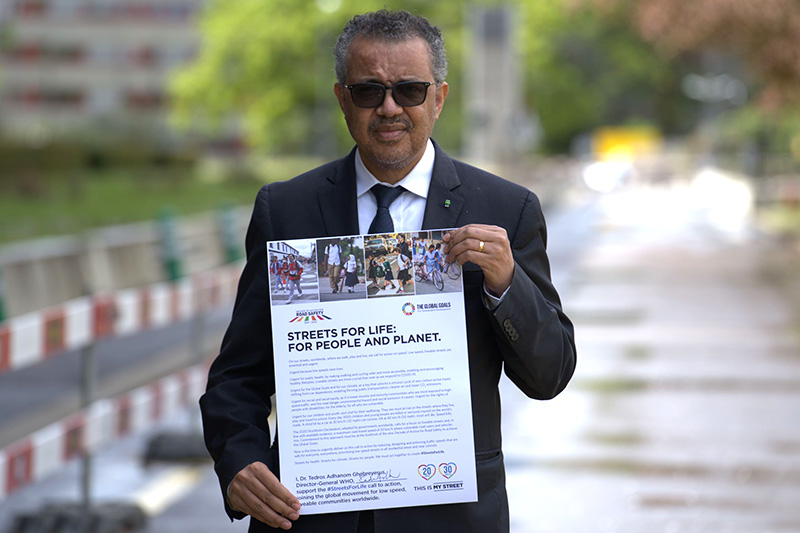
Signatories of the Call to Action include, inter alia: Dr Tedros; Henrietta Fore, Executive Director, UNICEF; Inger Andersen, Executive Director, UN Environment Programme; Jean Todt, UN Secretary General’s Special Envoy for Road Safety and FIA President; Tomas Eneroth, Minister for Infrastructure, Sweden; Jayathma Wickramanayake, UN Secretary General's Envoy on Youth; Ángela María Orozco Gómez, Minister of Transport, Colombia; James Wainaina Macharia, Cabinet Secretary for Transport, Kenya; Lord Robertson, Chairman, FIA Foundation; and Zoleka Mandela, Global Ambassador, Child Health Initiative.
The Stockholm Declaration, adopted by governments in 2020, made 30km/h its flagship recommendation in recognition of the critical role low speed can play not only in achieving the 2030 SDG road traffic injury target, but also in enabling many other policy goals. For example, low speed streets, enabling a shift to walking and cycling, are also essential for building back from Covid-19.
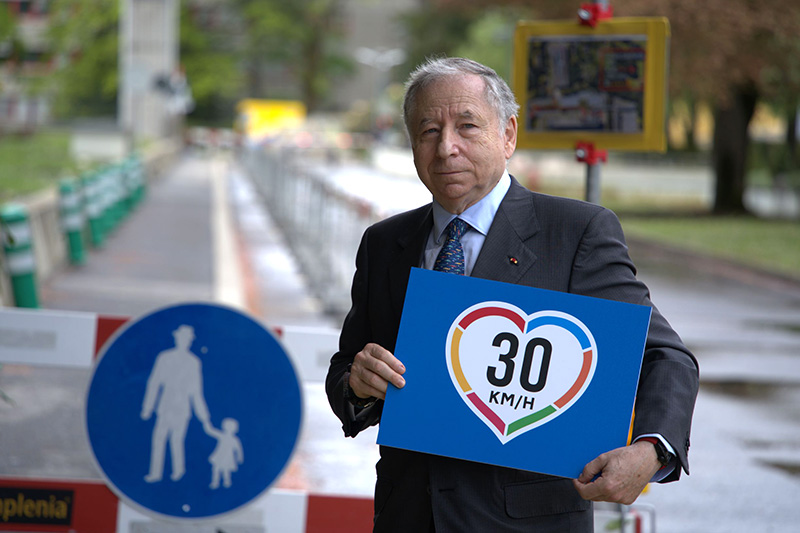
“We need a new vision for creating safe, healthy, green and liveable cities,” says Dr Tedros. “Low-speed streets are an important part of that vision. As we recover and rebuild from COVID-19, let’s make safer roads for a safer world.”
The Streets for Life campaign highlights the benefits of low-speed streets in urban areas to reduce road traffic injury - responsible for 1.35 million deaths each year and the leading global killer of young people – and to deliver co-benefits through greater access to active mobility of improved air quality, climate action and equity.
“As we embark on a global transition to net-zero emissions, a crucial milestone on this journey will be to move to a zero-emissions transport sector. Integrated, urban spaces which encourage walking and cycling as a form of mobility are a big part of this transition. I welcome the UN’s new Streets for life campaign as an important step to build momentum towards sustainable cities,” said Inger Andersen, UN Under-Secretary-General and Executive Director of the UN Environment Programme.
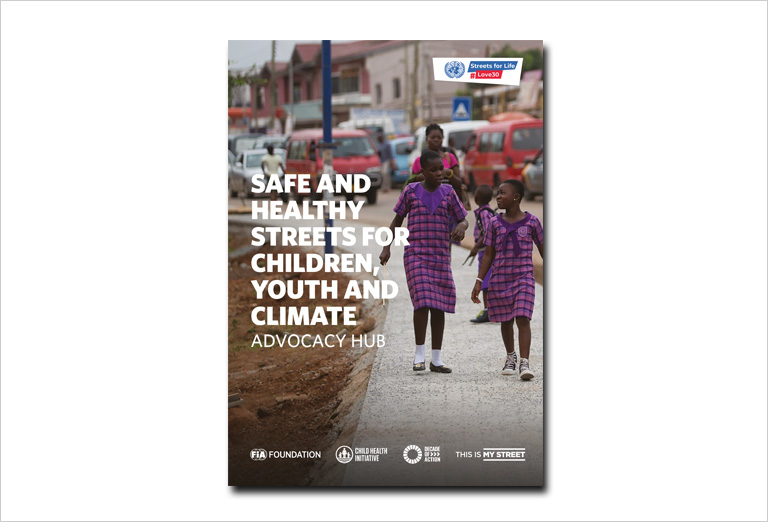
Jean Todt, UN Secretary General’s Special Envoy for Road Safety and FIA President commented: “Low-speed streets are central to building resilient communities, especially as we journey towards a safer, healthier, greener, and more inclusive world. #StreetsForLife contributes to achieving many of the UN Sustainable Development Goals, especially the two targets SDG 3.6 to halve global road deaths and injuries and 11.2 to provide access to safe, affordable and sustainable transport for all by 2030.”
Michelle Yeoh, Actor & UNDP Goodwill Ambassador for the Global Goals, said: “We need change. And we are uniting with a clear call to action: Streets for life. Making the case for low vehicle speeds in communities where children walk, cycle, learn and play. Returning to children their basic right to explore their streets in safety. Because keeping traffic speed below 30 kilometres an hour near children is the vaccine that can save many thousands of lives. And low speed will encourage zero carbon travel – all of us walking and cycling more – to help clean our air and protect our planet.”
“Our National Red Cross and Red Crescent Societies are engaged in road safety all over the world. We know that as crash impact speeds rise above 30 km/hour, injuries to vulnerable road users dramatically worsen. Introducing 30 km/hour speed limits in locations where vehicles mix with pedestrians and cyclists will save lives and will prevent serious injuries. I strongly support this life saving ‘Streets for Life #Love30’ campaign,” added Jagan Chapagain, Secretary General & CEO, International Federation of Red Cross and Red Crescent
Societies.
Support the Streets for Life Call to Action
Learn more about the FIA Foundation/Child Health Initiative Advocacy Hub



